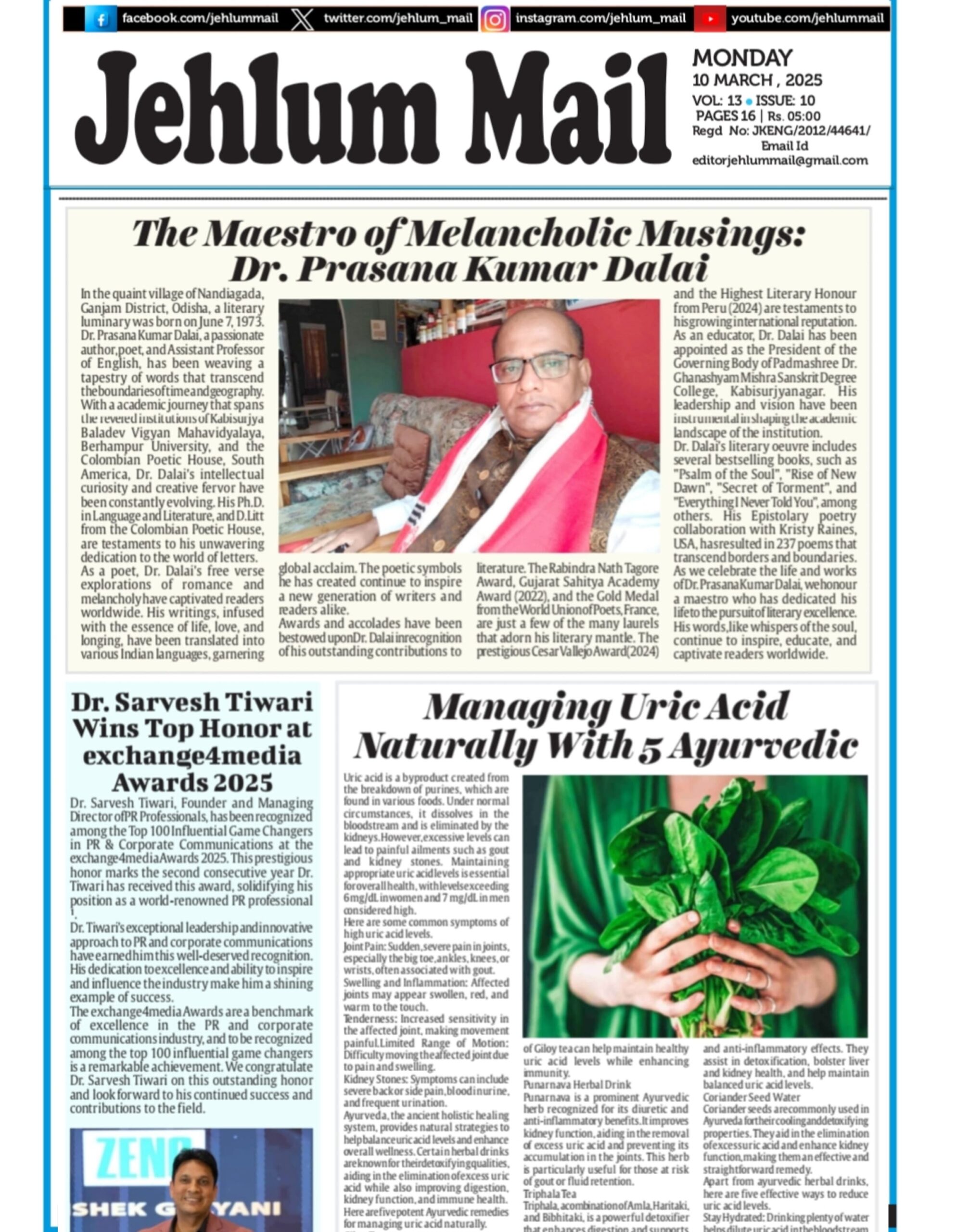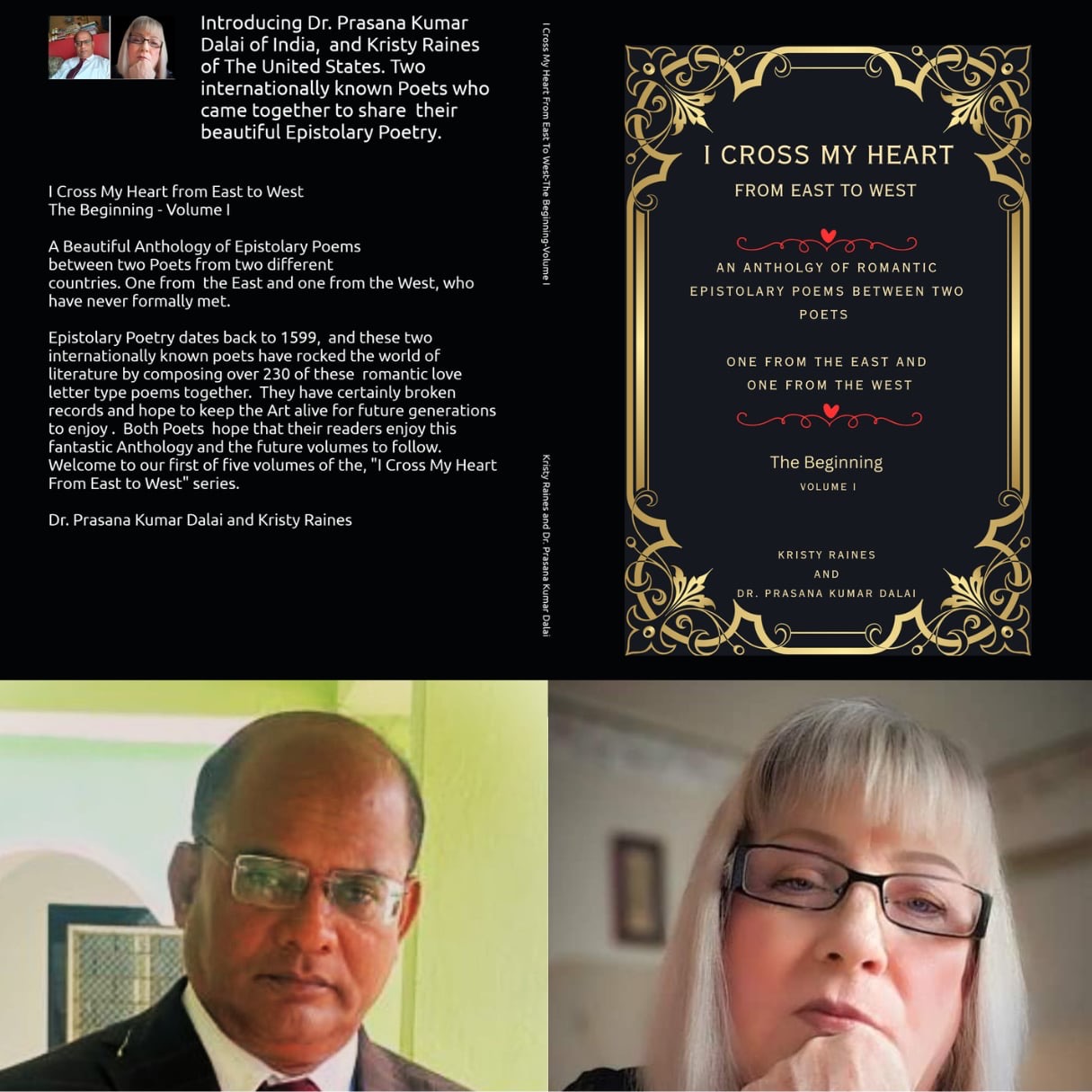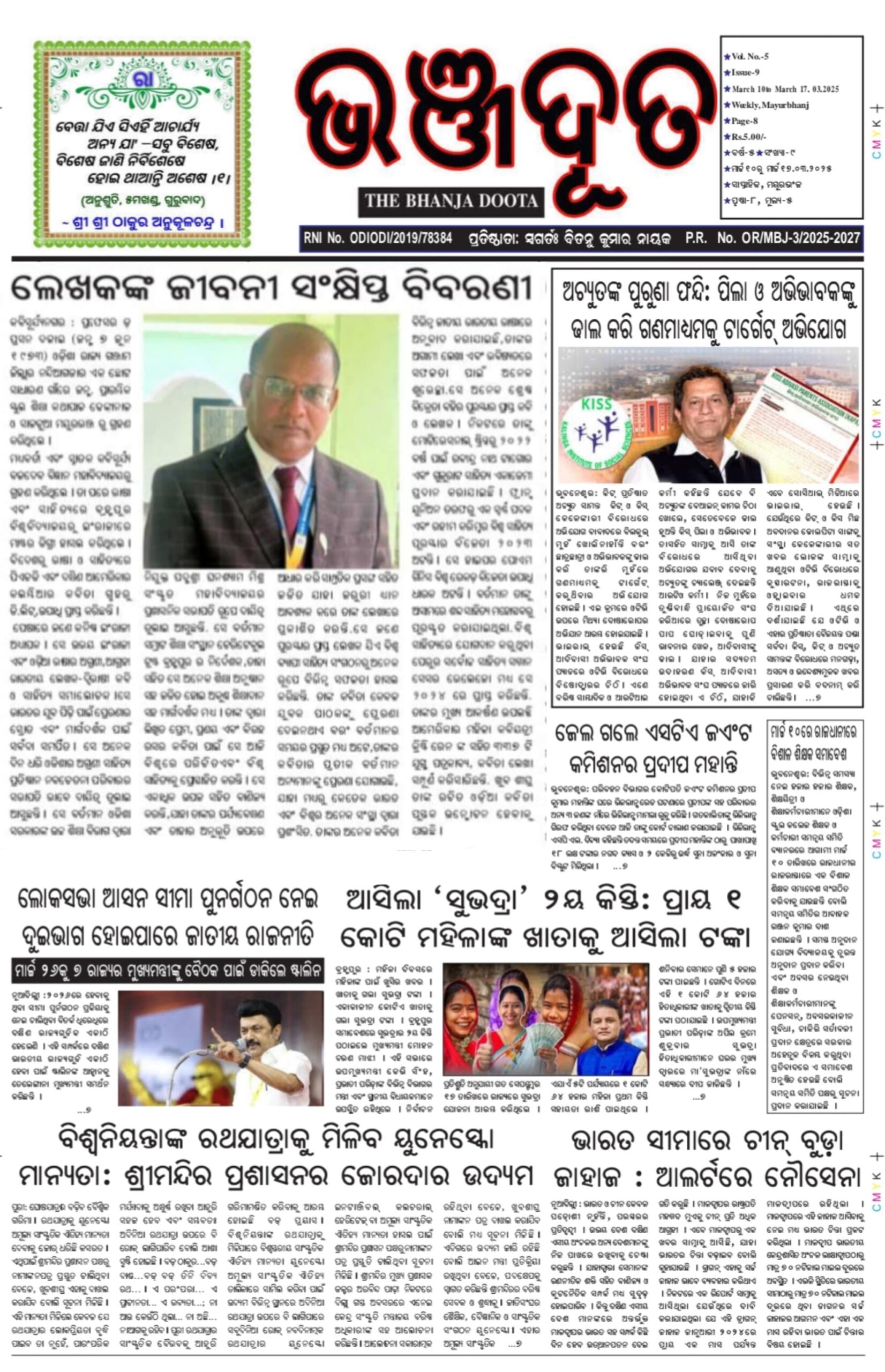
Our poem VOICE OF SILENCE reviewed by honorable reviewer Raj Kishore Patnaik.
Humbled and Honoured.
I have selected two of my favorite poems by two renowned poets, one by Dr. Prasana Kumar Dalai from India and the other by Mrs. Kristy Raines from the USA, for review and comparison. It’s entirely my personal choice. I understand that these poems may not go hand in hand, but I will try my best to collaborate them. Here, I request all my poetic friends to read through this review and share your valuable remarks.
VOICE OF SILENCE !
Silence has a voice ; listen to it
Do go down the memory lane
My time still stands erect there
Silent are my awkward moments
My silent words I face everyday
So much pain and agony dominate
The sea water keeps dead silent
Million hidden silences beneath
There is a silent rise in every fall
Listen to utter silence sometimes.
©®Dr Prasana Kumar Dalai @ India.
Date.Fri,03 May 2024.
Alone…
Loneliness and sadness grew in my heart without you
I tried to find in someone else what I found in you
What I failed to realize is that you can not be replaced
When two hearts are one, none can separate them,
no matter how much I try to move forward..
If he would try to touch my hand, it would chill me
I couldn’t look in his eyes…
Because I couldn’t find my reflection
You hold the key that locks these golden chains around my heart
I need your kiss, your touch, and the love only we share
But I have no answers…
Because though we are apart in distance
our hearts couldn’t be closer
So I will stay alone with your memory
’cause I can’t live a life with someone else that was only meant for us
I pray that one day you find your way back to me
You will find me where you left me…. Alone
©®Kristy Raines
Date.Fri,03 2024.
Review and Comparison of “Voice of Silence” by Dr. Prasana Kumar Dalai and “Alone” by Kristy Raines:
“Voice of Silence” by Dr. Prasana Kumar Dalai is a poignant exploration of silence and its various dimensions. The poem begins with a powerful assertion: “Silence has a voice; listen to it.” This sets the tone for a contemplative journey into the depths of memory and emotion. The poet invites the reader to “go down the memory lane” with him, suggesting a nostalgic reflection on the past.
The use of imagery in the poem is striking. The poet describes how his “time still stands erect” in the memory lane, indicating that certain moments or experiences remain vivid and unchanged in his mind. The reference to “silent words” that he faces every day suggests a struggle with unspoken thoughts or emotions, adding a layer of complexity to the theme of silence.
The poem also delves into the theme of pain and agony, which “dominate” the poet’s experience. The comparison of pain to “sea water” that keeps “dead silent” evokes a sense of vastness and depth, highlighting the intensity of the poet’s emotions. The mention of “million hidden silences beneath” further emphasizes the complexity and depth of human experience.
One of the most powerful lines in the poem is “There is a silent rise in every fall,” which suggests that even in moments of failure or despair, there is a quiet strength or resilience that emerges. This line encapsulates the central message of the poem: the idea that silence is not just absence of noise, but a profound presence that can be both comforting and challenging.
In contrast, “Alone” by Kristy Raines explores the theme of loneliness and heartbreak. The poem opens with a poignant reflection on the pain of being without a loved one: “Loneliness and sadness grew in my heart without you.” This sets the tone for a deeply personal and emotional journey through the speaker’s experience of loss and longing.
The imagery in “Alone” is vivid and evocative. The speaker describes trying to find in someone else what was found in the lost love, only to realize that the connection was unique and irreplaceable. The image of two hearts being one, and the impossibility of separating them, conveys a sense of deep emotional bond that transcends physical distance.
The poem also explores the idea of memory and its power to keep the past alive. The speaker expresses a desire to stay “alone with your memory,” suggesting that the memory of the lost love is a source of comfort and pain. The final lines, “You will find me where you left me… Alone,” convey a sense of resignation and acceptance of the current state of being.
In terms of structure, “Voice of Silence” is a free verse poem with a reflective and contemplative tone. The use of enjambment and varying line lengths creates a sense of fluidity and movement, mirroring the flow of thoughts and emotions. In contrast, “Alone” has a more structured form with regular stanzas and rhyme scheme, which adds a sense of musicality and rhythm to the poem.
In conclusion, “Voice of Silence” and “Alone” are both powerful poems that explore themes of silence, memory, and longing. While “Voice of Silence” focuses more on the internal experience of silence and its nuances, “Alone” delves into the external experience of loneliness and heartbreak. Despite their differences, both poems offer profound insights into the human condition and the complexities of love and loss.





